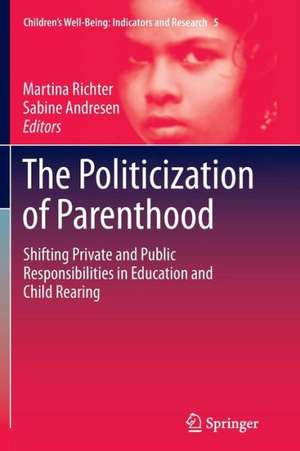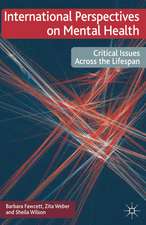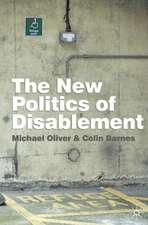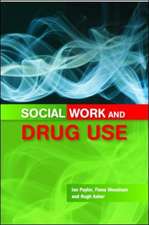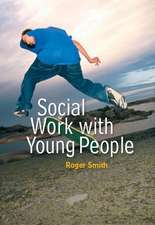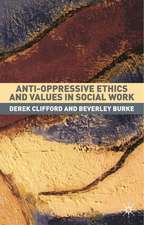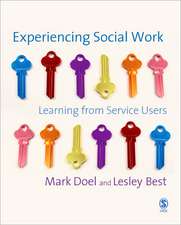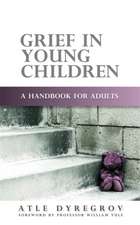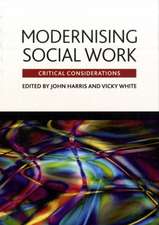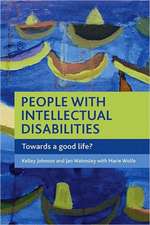The Politicization of Parenthood: Shifting private and public responsibilities in education and child rearing: Children’s Well-Being: Indicators and Research, cartea 5
Editat de Martina Richter, Sabine Andresenen Limba Engleză Paperback – 16 apr 2014
| Toate formatele și edițiile | Preț | Express |
|---|---|---|
| Paperback (1) | 945.79 lei 6-8 săpt. | |
| SPRINGER NETHERLANDS – 16 apr 2014 | 945.79 lei 6-8 săpt. | |
| Hardback (1) | 951.91 lei 6-8 săpt. | |
| SPRINGER NETHERLANDS – mar 2012 | 951.91 lei 6-8 săpt. |
Din seria Children’s Well-Being: Indicators and Research
- 5%
 Preț: 1103.22 lei
Preț: 1103.22 lei - 15%
 Preț: 649.06 lei
Preț: 649.06 lei -
 Preț: 391.99 lei
Preț: 391.99 lei -
 Preț: 396.24 lei
Preț: 396.24 lei - 18%
 Preț: 730.16 lei
Preț: 730.16 lei - 15%
 Preț: 703.38 lei
Preț: 703.38 lei - 20%
 Preț: 570.97 lei
Preț: 570.97 lei - 20%
 Preț: 578.30 lei
Preț: 578.30 lei - 24%
 Preț: 641.89 lei
Preț: 641.89 lei -
 Preț: 389.70 lei
Preț: 389.70 lei - 20%
 Preț: 514.27 lei
Preț: 514.27 lei - 5%
 Preț: 712.81 lei
Preț: 712.81 lei - 20%
 Preț: 553.18 lei
Preț: 553.18 lei -
 Preț: 397.16 lei
Preț: 397.16 lei - 20%
 Preț: 481.40 lei
Preț: 481.40 lei - 18%
 Preț: 1110.86 lei
Preț: 1110.86 lei - 18%
 Preț: 891.48 lei
Preț: 891.48 lei -
 Preț: 363.57 lei
Preț: 363.57 lei - 18%
 Preț: 895.76 lei
Preț: 895.76 lei - 5%
 Preț: 1416.81 lei
Preț: 1416.81 lei - 5%
 Preț: 711.32 lei
Preț: 711.32 lei - 5%
 Preț: 715.00 lei
Preț: 715.00 lei - 18%
 Preț: 947.35 lei
Preț: 947.35 lei - 5%
 Preț: 912.67 lei
Preț: 912.67 lei - 5%
 Preț: 722.12 lei
Preț: 722.12 lei
Preț: 945.79 lei
Preț vechi: 1153.39 lei
-18% Nou
Puncte Express: 1419
Preț estimativ în valută:
181.00€ • 188.27$ • 149.43£
181.00€ • 188.27$ • 149.43£
Carte tipărită la comandă
Livrare economică 14-28 aprilie
Preluare comenzi: 021 569.72.76
Specificații
ISBN-13: 9789400798755
ISBN-10: 940079875X
Pagini: 324
Ilustrații: XII, 312 p.
Dimensiuni: 155 x 235 x 17 mm
Greutate: 0.45 kg
Ediția:2012
Editura: SPRINGER NETHERLANDS
Colecția Springer
Seria Children’s Well-Being: Indicators and Research
Locul publicării:Dordrecht, Netherlands
ISBN-10: 940079875X
Pagini: 324
Ilustrații: XII, 312 p.
Dimensiuni: 155 x 235 x 17 mm
Greutate: 0.45 kg
Ediția:2012
Editura: SPRINGER NETHERLANDS
Colecția Springer
Seria Children’s Well-Being: Indicators and Research
Locul publicării:Dordrecht, Netherlands
Public țintă
ResearchCuprins
Introduction - Sabine Andresen and Martina Richter - The Politicization of Parenthood - Shifting Private and Public Responsibilities in Education and Child Rearing.-
Part I Families and the Welfare State: the Understanding of Responsibility .-
Val Gillies - Family Policy and the Politics of Parenting: From Function to Competence.-
Nadia Kutscher - Families, Professionals, and Responsibility.-
Anne Lise Ellingsaeter - Nordic Politicization of Parenthood: Unfolding Hybridization?.-
Brid Featherstone - Can a Crisis Become an Opportunity? Gender and Care in Contemporary Ireland.-
Kristen D. Nawrotzki - Parent–School Relations in England and the USA: Partnership, Problematized.-
Andreas Lange - Family and Welfare State Change: Challenges for Education.-
Nina Oelkers - The Redistribution of Responsibility Between State and Parents – Family in the Context of Post-Welfare-State Transformation.-
Part II Child Rearing Between Family Care and Institutional Provisions.-
Tanja Betz - Early Childhood Education, and Social Inequality: Parental Models of a “Good” Childhood.-
Colette McAuley - Child Well-Being in the UK: Children's Views of Families.-
Carol Vincent, Nicola Rollock, Stephen Ball, and David Gillborn - The Educational Strategies of the Black Middle Classes.-
Jutta Ecarius - Significance of Family and School, Educational Standards, and Social Reproduction in Education.-
Elke Wild and Sittipan Yotyodying - Studying at Home—With Whom and in Which Way? Homework Practices and Conflicts in the Family.-
Christine Hunner-Kreisel - “Having to Keep Silent”: A Capabilities Perspective on Growing Up and the “Education Process” in a Migration Family .-
Part III Meeting Parents' and Children's Needs: Professionals in Schools .-
Erin McNamara Horvat - Pushing Parents Away:The Role of District Bureaucracy in an Urban School.-
Till-Sebastian Idel, Kerstin Rabenstein, and Sabine Reh - Symbolic Constructions, Pedagogical Practices, and the Legitimization of the All-Day School From a Professional Perspective: Tendencies Towards Familialization in All-Day Schools.-
Nicole Börner - Parents' Perspectives on Services to Support Families in All-Day Schools.-
Michael Urban, Kapriel Meser, and Rolf Werning - Parental Involvement in All-Day Special Schools for Learning Disabilities.-
Regina Soremski - Educational or Childrearing Partnerships: What Kind of Cooperation is Needed at All-Day Secondary Schools?.-
Natalie Fischer and Felix Brümmer - School Attachment and Performance: The Impact of Participation in Extracurricular Activities at School,-
Ivo Züchner - Daily School Time, Workforce Participation, and Family Life: Time Spent in School as a Condition of Family Life.-
Sabine Andresen, Lena Blomenkamp, Nicole Koch, Martina Richter, Anne-Dorothee Wolf, and Kathrin Wrobel - Ideas of Family and Concepts of Responsibility at All-Day School.-
Contributors.
Part I Families and the Welfare State: the Understanding of Responsibility .-
Val Gillies - Family Policy and the Politics of Parenting: From Function to Competence.-
Nadia Kutscher - Families, Professionals, and Responsibility.-
Anne Lise Ellingsaeter - Nordic Politicization of Parenthood: Unfolding Hybridization?.-
Brid Featherstone - Can a Crisis Become an Opportunity? Gender and Care in Contemporary Ireland.-
Kristen D. Nawrotzki - Parent–School Relations in England and the USA: Partnership, Problematized.-
Andreas Lange - Family and Welfare State Change: Challenges for Education.-
Nina Oelkers - The Redistribution of Responsibility Between State and Parents – Family in the Context of Post-Welfare-State Transformation.-
Part II Child Rearing Between Family Care and Institutional Provisions.-
Tanja Betz - Early Childhood Education, and Social Inequality: Parental Models of a “Good” Childhood.-
Colette McAuley - Child Well-Being in the UK: Children's Views of Families.-
Carol Vincent, Nicola Rollock, Stephen Ball, and David Gillborn - The Educational Strategies of the Black Middle Classes.-
Jutta Ecarius - Significance of Family and School, Educational Standards, and Social Reproduction in Education.-
Elke Wild and Sittipan Yotyodying - Studying at Home—With Whom and in Which Way? Homework Practices and Conflicts in the Family.-
Christine Hunner-Kreisel - “Having to Keep Silent”: A Capabilities Perspective on Growing Up and the “Education Process” in a Migration Family .-
Part III Meeting Parents' and Children's Needs: Professionals in Schools .-
Erin McNamara Horvat - Pushing Parents Away:The Role of District Bureaucracy in an Urban School.-
Till-Sebastian Idel, Kerstin Rabenstein, and Sabine Reh - Symbolic Constructions, Pedagogical Practices, and the Legitimization of the All-Day School From a Professional Perspective: Tendencies Towards Familialization in All-Day Schools.-
Nicole Börner - Parents' Perspectives on Services to Support Families in All-Day Schools.-
Michael Urban, Kapriel Meser, and Rolf Werning - Parental Involvement in All-Day Special Schools for Learning Disabilities.-
Regina Soremski - Educational or Childrearing Partnerships: What Kind of Cooperation is Needed at All-Day Secondary Schools?.-
Natalie Fischer and Felix Brümmer - School Attachment and Performance: The Impact of Participation in Extracurricular Activities at School,-
Ivo Züchner - Daily School Time, Workforce Participation, and Family Life: Time Spent in School as a Condition of Family Life.-
Sabine Andresen, Lena Blomenkamp, Nicole Koch, Martina Richter, Anne-Dorothee Wolf, and Kathrin Wrobel - Ideas of Family and Concepts of Responsibility at All-Day School.-
Contributors.
Notă biografică
Currently, families are being subjected to increasing public attention with interest focusing on their potential strengths and weaknesses in determining how well children do at school. Parents and children are at the forefront of the welfare state and socio-educational activities in current programs and policies. This book examines the resulting changes in the relationship between families and the state, and the shifting borders of public and private responsibility in education, child care, and childrearing. It discusses the practice of all-day schooling in Germany within this context. It considers international and national debates that underline the fact that issues in private life are increasingly entering the public discourse and becoming subject to attempts at socio-political control. Finally, it discusses the growing politicization of parenthood in the (post) welfare state and the increasing attention being paid to the structural conditions of gainful employment and child care as well as to the current relations between the genders.
Textul de pe ultima copertă
Currently, families are being subjected to increasing public attention with interest focusing on their potential strengths and weaknesses in determining how well children do at school. Parents and children are at the forefront of the welfare state and socio-educational activities in current programs and policies. This book examines the resulting changes in the relationship between families and the state, and the shifting borders of public and private responsibility in education, child care, and childrearing. It considers international and national debates that underline the fact that issues in private life are increasingly entering the public discourse and becoming subject to attempts at socio-political control. Finally, it discusses the growing politicization of parenthood in the (post) welfare state and the increasing attention being paid to the structural conditions of gainful employment and child care as well as to the current relations between the genders.
Caracteristici
Provides international perspectives on children, parents and professionals in (all-day) schools Includes debates on time and care regimes in welfare states Offers international discussions on shifting the borders between private and public responsibility for education and childrearing
